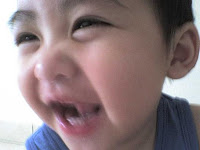Many of us know that Education is not just about Examination. But not all us know how to enjoy the “Education” either for us or our children. This dilemma may be resulted from our little knowledge of what “Education” is all about. Most of the time, we don’t know what we are doing and what we are going to do. We often based our understanding on “Education” with our own “wisdom” or what have been taught to us by our parents and more often “hearsay” that are not adequately researched. As a result of that, we end-up being confused and hurt each time the outcome does not meet our expectation. It is with this in mind, I have some reflection which I’d like to share with you all.
Most of the time, our emphasis are all focus on “EXAMINATION” and the “RESULT”. Due to that, we pressure ourselves and/or our children for a good result. But if you look at the following flow, you will realize “examination” isonly part of the process in education, not ALL of it!!
As you read from Wikipedia, Education is defined as the following:
Education encompasses teaching and learning specific skills, and also something less tangible but more profound: the imparting of knowledge, positive judgement and well-developed wisdom. Education has as one of its fundamental aspects the imparting of culture from generation to generation (see socialization). Education means 'to draw out', facilitating realisation of self-potential and latent talents of an individual. It is an application of pedagogy, a body of theoretical and applied research relating to teaching and learning and draws on many disciplines such as psychology, philosophy, computer science, linguistics, neuroscience, sociology and anthropology. [1]
Knowledge is defined (Oxford English Dictionary) variously as
(i) facts, information, and skills acquired by a person through experience or education; the theoretical or practical understanding of a subject,
(ii) what is known in a particular field or in total; facts and information or
(iii) Awareness or familiarity gained by experience of a fact or situation.
Knowledge acquisition involves complex cognitive processes: perception, learning, communication, association, and reasoning. The term knowledge is also used to mean the confident understanding of a subject, with the ability to use it for a specific purpose.
That’s why it’s always good to ask yourself and/or our children these questions: What is the new knowledge or new things you learn today? What new skill do you acquire today?
Got homework or not? How many homework have you got today? Have you finished your homework? How’s your performance today? Or those questions that are centre around “task” “work” “results” etc.
“Experience” is the key word. Do you want your child to remember the schooling days as just about book, homework, tuition, test, exam and lots of exam, nothing but exams?
Look at the “FALSAFAH PENDIDIKAN NEGARA” again. It is good right? But replacing examination with more examinations/assessments may not “draw out” an individual’s potential as well as producing an “insan yang seimbang dan harmonis dari segi intelek, rohani, emosi dan jasmani….” as well as “melahirkan rakyat
Saying that doesn’t mean I deny the importance of examination. As in an academic or professional context, examinations (or exams for short) are tests which aim to determine the ability of a student. Or in another definition: “A test or an examination (or "exam") is an assessment, often administered on paper or on the computer, intended to measure the test-takers' or respondents' (often a student) knowledge, skills, aptitudes or many other topics (e.g., beliefs).”
But if you look at the above process again, examination is just a testing of knowledge or skills by means of questions and grade will be awarded using different level of classification or marks given in an exam.
So, prepare your children to knowing the Purpose of going to school, help them to enjoy the learning process (stop asking them questions on exam/test nothing but exams) and you will bring back the smiling faces!!
As the Director of Malaysian Examinations Syndicate (MES) had put it “The focus should not only be on academic aspects. We should also assess students’ personal and character development and involvement in extra-curricular activities.”








2 comments:
Ko..
I would say Luke, Matt & Joyce are blessed to have you as their father leh.. :-)
Thanks, sis...long way to go :p
Post a Comment